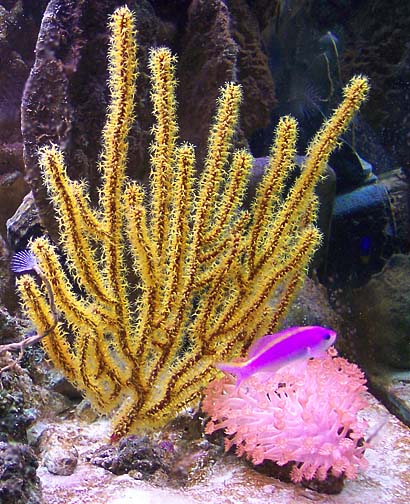Ok, this is a combo post, so here goes:
Philwd - do you have a link to that post/study about the parasites dying off after so many generations? I'd like to revisit it and it might be interesting reading for other people on this thread.
gophia - everybody has 3 types of herpes... remind me to avoid women from Montreal

If everybody already has these viruses, why do kids still end up getting chickenpox? I think this is a bit of an overstatement on the prevalence of herpes... many people may carry multiple strains of herpes, but I don't think it is that rampant. Also, there is a difference between carrying it and being a vector that can pass it on. Viruses can be crystallized and remain viable pretty much forever, they aren't really alive so as long as something doesn't destroy them, they are still around. Parasites are easier to get rid of in an environment because all you have to do is interrupt the life cycle somewhere, and they die out.
jmicky41 - I believe part of the immune response in fish is developing a thicker mucus layer, which can prevent the parasite from being able to latch on and bite. If you could grow a thicker skin you wouldn't have to worry about mosquitos biting you

Maintaining this thicker mucus layer comes at a cost in terms of energy to produce it, so if there is no parasite in the environment, the fish will then stop producing the extra mucus and then become susceptible to infection again. They aren't developing anti-bodies like you would for a viral infection, but it is still an acquired immune response which makes them resistant to parasitic infection.
firewill65 - things to keep in mind that I think are mentioned in this thread. Is the time you are leaving your main tank fallow (without fish) from when you put in the live rock and live sand and any other thing that my contain resting spores/cysts of the parasite a long enough time for those cysts to all hatch out and then die off after not finding a host?
The quarantine in a separate tank, are you planning on doing this 6 weeks in hyposalinity? Are you going to dose copper? Many people have fish that show no signs externally that may still be hosting parasites, so just keeping it separate for 6 weeks to monitor for an outbreak is no guarantee it doesn't have some parasites which will then make it into your display. I think this is the main problem with quarantine, developing an effective quarantine procedure to make sure no parasites get in. A lot of people are of the opinion that it is more hassle then it is worth because they can't guarantee no parasites are getting in, and so chose to focus on maintaining healthy fish who can fight off the parasites on their own.
Paul B - but the point is... you are still getting bit by the mosquitos which are an external parasite in the environment. The malaria parasite which is carried by mosquitos the native people may have immunity to, but they still get bit by mosquitos.
People can develop an immunity to a parasite, but how do you keep from getting bit? Our immune response doesn't have a way to prevent getting bit... but fish can create a thicker mucus layer on their skin to keep things out. Imagine if we could excrete deet in our sweat... that would keep us from getting bit.
thriceanangel - well, marine ich is a ciliate protozoan from what I've read... what do we keep in our tanks that eat protozoans as a main part of their diet? In the ocean zooplankton eat protozoans. I thought corals mainly ate zooplankton prey items, so tanks with lots of corals may actually be more likely to have everpresent ich since the corals would be keeping the protozoan's predators in check. Then again, healthy systems with lots of corals also usually do a lot to try and encourage zooplankton to feed their corals, so they would also be breeding things that eat protozoans accidentally

Some people try to culture ciliates as a food source for larval fish and larval crustaceans. So I would think breeding populations of shrimp, and lots of pods would be good to keep "ich" in check.
Anybody know if sponges or clams or some other "filter" feeders prey on protozoans?
Also, maybe skimming can kill the free swimming parasite stage of marine ich, but it would also be killing the zooplankton that feeds on the protozoans... so maybe overskimming helps ich survive in aquariums by cleaning out the predators.
Just my 2 cents.... or 1.50 as it may be.
Doug


